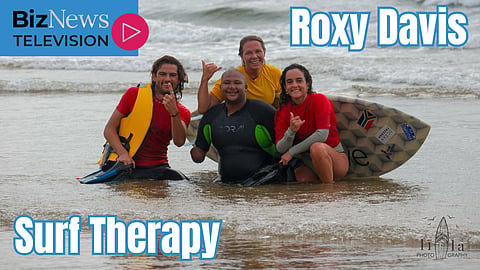Champion SA surfer carves a new path with surf therapy to stoke joy in kids with disabilities – Roxy Davis
Roxy Davis, a nine-time South African surfing champion, has turned her love for the waves into a mission to provide surfing opportunities for children with disabilities, many of whom rarely visit the beach. Driven by her belief in the transformative power of surfing, she founded the Roxy Davis Foundation in 2019, offering free surf therapy to people with disabilities at Muizenberg Beach in Cape Town. She has also completed a doctorate in health and rehabilitation at the University of Cape Town. In an interview with BizNews, Davis shared that the impact of surf therapy goes beyond physical benefits, with participants reporting profound mental health improvements and life-changing experiences. One remarkable example is Raemondo Lessing, a quadruple amputee who began surfing at 14. Within 18 months, he became a South African national champion, inspiring others with his determination and joy. As Davis puts it, “Surfing is the hook, but the impact goes far beyond the waves.”
Sign up for your early morning brew of the BizNews Insider to keep you up to speed with the content that matters. The newsletter will land in your inbox at 5:30am weekdays. Register here.
Support South Africa’s bastion of independent journalism, offering balanced insights on investments, business, and the political economy, by joining BizNews Premium. Register here.
If you prefer WhatsApp for updates, sign up to the BizNews channel here.
Watch here
Listen here

